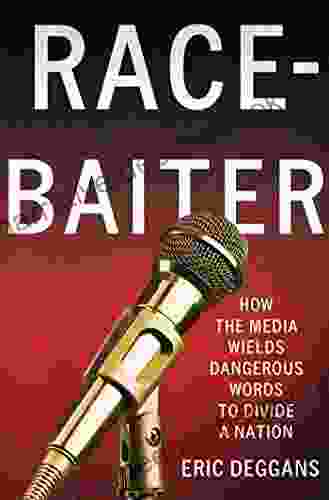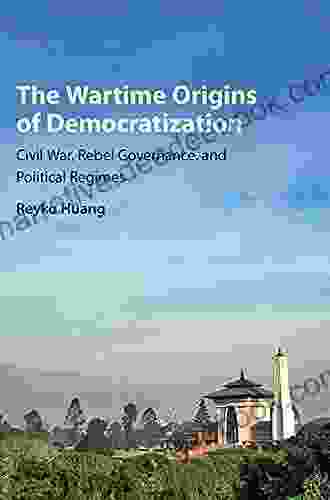Civil War Rebel Governance and Political Regimes: Exploring the Complexities of International Recognition

Civil wars are often marked by the emergence of rebel groups that seek to challenge the established government's authority. These rebellions can pose significant challenges to international recognition, as states navigate the complexities of balancing their own interests with the principles of sovereignty and non-interference. This article delves into the intricate world of civil war rebel governance and political regimes, examining the problems associated with international recognition and exploring the factors that influence states' decisions.
The Nature of Rebel Governance
Rebel governance refers to the structures and institutions established by rebel groups to govern the territory under their control. These structures may vary greatly depending on the group's goals, ideology, and capabilities. Some rebellions aim to establish alternative political systems that challenge the existing order, while others focus solely on military objectives without aspirations for governance.
5 out of 5
| Language | : | English |
| File size | : | 1526 KB |
| Text-to-Speech | : | Enabled |
| Screen Reader | : | Supported |
| Enhanced typesetting | : | Enabled |
| Word Wise | : | Enabled |
| Print length | : | 234 pages |
Establishing effective rebel governance is a formidable task, requiring resources, legitimacy, and the capacity to maintain order and provide basic services. Rebel groups often face challenges in consolidating their authority, managing internal tensions, and gaining acceptance from the population they claim to represent.
The Problem of International Recognition
International recognition of a rebel government is a highly contested issue. On the one hand, recognizing a rebel government can legitimize it and bolster its legitimacy in the eyes of its own people and the international community. Recognition can also open up opportunities for diplomatic engagement, humanitarian assistance, and potential financial support.
On the other hand, recognizing a rebel government can be seen as a violation of the principle of non-interference in the internal affairs of another state. It can also complicate diplomatic relations between the recognizing state and the government it seeks to replace, potentially leading to conflict or isolation.
Factors Influencing Recognition
States consider several factors when deciding whether or not to recognize a rebel government. These factors include:
* Control and Stability: States are more likely to recognize rebel governments that exercise effective control over a significant territory and demonstrate the capacity to maintain order and provide basic services. * Legitimacy and Support: Recognition is more likely if the rebel government enjoys widespread support among the population it claims to represent. Evidence of popular support can come from elections, referendums, or other forms of political expression. * Goals and Ideology: States are more inclined to recognize rebel governments that share their values and interests. If the rebel group's goals align with the recognizing state's foreign policy objectives, recognition may be seen as a strategic move. * International Pressure: Recognition can be influenced by international pressure, such as resolutions passed by the United Nations or support from other recognized states. If a significant number of states recognize a rebel government, it can become more difficult for other states to resist ng so.
Consequences of Recognition
Recognition of a rebel government can have significant consequences, both for the rebel group and the international community. For the rebel group, recognition can:
* Enhance legitimacy and increase the likelihood of success in achieving its goals. * Open up opportunities for diplomatic engagement, humanitarian assistance, and financial support. * Bolster the morale of the rebel fighters and increase their support among the population.
For the international community, recognition can:
* Complicate diplomatic relations between the recognizing state and the government it seeks to replace. * Set a precedent for future rebellions and undermine the principle of non-interference. * Create humanitarian obligations for the recognizing state, such as providing aid or protecting civilians in rebel-held territory.
Case Studies
To illustrate the complexities of civil war rebel governance and international recognition, let us examine two case studies:
1. The Syrian National Coalition
The Syrian National Coalition (SNC) was formed in 2012 as an umbrella organization representing various rebel groups fighting against the Syrian government. The SNC's primary goal was to establish a transitional government and guide Syria towards a democratic future. While the SNC gained recognition from several Western states, including the United States, France, and the United Kingdom, it faced challenges in consolidating its authority and maintaining unity among its constituent groups.
2. The Donetsk People's Republic
The Donetsk People's Republic (DPR) emerged in 2014 following a pro-Russian separatist movement in eastern Ukraine. The DPR declared independence from Ukraine and established a government, but its legitimacy was not recognized by the Ukrainian government or the international community. Despite this lack of recognition, the DPR operated as a de facto state, providing basic services and maintaining control over a portion of Ukrainian territory.
Civil war rebel governance and political regimes pose unique challenges to international recognition. States navigate complex considerations when deciding whether or not to recognize rebel governments, weighing their own interests against principles of sovereignty and non-interference. Recognition can have significant consequences for both the rebel group and the international community, affecting legitimacy, stability, and diplomatic relations. Through case studies, we have explored the complexities of these issues and highlighted the challenges faced by states in responding to the emergence of rebel governance in conflict-ridden areas.
5 out of 5
| Language | : | English |
| File size | : | 1526 KB |
| Text-to-Speech | : | Enabled |
| Screen Reader | : | Supported |
| Enhanced typesetting | : | Enabled |
| Word Wise | : | Enabled |
| Print length | : | 234 pages |
Do you want to contribute by writing guest posts on this blog?
Please contact us and send us a resume of previous articles that you have written.
 Book
Book Novel
Novel Text
Text Library
Library Paperback
Paperback Magazine
Magazine Newspaper
Newspaper Paragraph
Paragraph Sentence
Sentence Bookmark
Bookmark Glossary
Glossary Foreword
Foreword Preface
Preface Synopsis
Synopsis Annotation
Annotation Manuscript
Manuscript Codex
Codex Narrative
Narrative Biography
Biography Memoir
Memoir Reference
Reference Dictionary
Dictionary Narrator
Narrator Resolution
Resolution Catalog
Catalog Stacks
Stacks Periodicals
Periodicals Study
Study Scholarly
Scholarly Academic
Academic Journals
Journals Reading Room
Reading Room Rare Books
Rare Books Interlibrary
Interlibrary Study Group
Study Group Storytelling
Storytelling Awards
Awards Reading List
Reading List Theory
Theory Textbooks
Textbooks Giant Rabbit
Giant Rabbit Maya Talmon Chvaicer
Maya Talmon Chvaicer Rachelle Friedman
Rachelle Friedman G Alan Tarr
G Alan Tarr Roland Dannreuther
Roland Dannreuther Glenn Firebaugh
Glenn Firebaugh Arabella Stanger
Arabella Stanger Eleanor Farjeon
Eleanor Farjeon Jukka Tuhkuri
Jukka Tuhkuri Jimmy Newell
Jimmy Newell Esther Archer Lakhani
Esther Archer Lakhani Laura Kinsale
Laura Kinsale David J Bodenhamer
David J Bodenhamer Michael Hayden
Michael Hayden J Zachary Pike
J Zachary Pike Paul Brody
Paul Brody Jessica Hannigan
Jessica Hannigan Suresh Antonio
Suresh Antonio Emily Bunney
Emily Bunney Ralph P Lester
Ralph P Lester
Light bulbAdvertise smarter! Our strategic ad space ensures maximum exposure. Reserve your spot today!

 Danny SimmonsA Comprehensive Guide to Old-Fashioned Doilies: Crochet Patterns, History,...
Danny SimmonsA Comprehensive Guide to Old-Fashioned Doilies: Crochet Patterns, History,... Alex ReedFollow ·8.1k
Alex ReedFollow ·8.1k Bruce SnyderFollow ·12.5k
Bruce SnyderFollow ·12.5k Jeremy CookFollow ·7.7k
Jeremy CookFollow ·7.7k Theo CoxFollow ·9.3k
Theo CoxFollow ·9.3k Mitch FosterFollow ·5.1k
Mitch FosterFollow ·5.1k Brandon CoxFollow ·15.8k
Brandon CoxFollow ·15.8k Barry BryantFollow ·13.1k
Barry BryantFollow ·13.1k Edwin CoxFollow ·18.4k
Edwin CoxFollow ·18.4k

 Dallas Turner
Dallas TurnerParasols and Peril: Adventures in Grace
In the quaint town...

 Caleb Carter
Caleb CarterFlight Attendant Joe: A Dedicated Professional in the...
Flight Attendant Joe...

 Jerry Ward
Jerry WardPick Lottery The List For 23 States August 15 2024
The Pick Lottery is a multi-state lottery...

 Hudson Hayes
Hudson HayesHow the Media Wields Dangerous Words to Divide a Nation
In a world where the media is...

 Curtis Stewart
Curtis StewartThe Magic Mala: A Story That Changes Lives
In the realm of ancient traditions and...

 Raymond Parker
Raymond ParkerEarthly Meditations: A Poetic Tapestry of Nature,...
In the realm of contemporary...
5 out of 5
| Language | : | English |
| File size | : | 1526 KB |
| Text-to-Speech | : | Enabled |
| Screen Reader | : | Supported |
| Enhanced typesetting | : | Enabled |
| Word Wise | : | Enabled |
| Print length | : | 234 pages |










